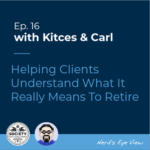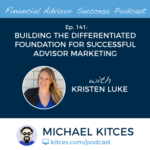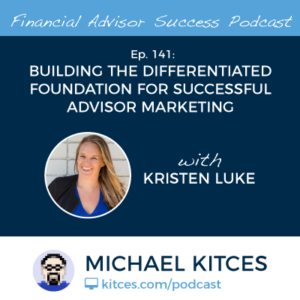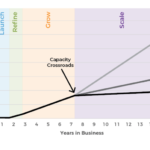Enjoy the current installment of "weekend reading for financial planners" – this week's edition kicks off with the big news that two lawsuits have been filed against the SEC regarding its new Regulation Best Interest, one by a coalition of 8 state attorney generals that claim the SEC failed to follow the requirements of Dodd-Frank that any new standard of conduct for brokers be at least as stringent as the fiduciary duty that applies to RIAs, and a second by XY Planning Network that claim the SEC has exceeded its authority by trying to re-draw the dividing line between brokers and investment advisers and that all financial planning advice is required under the Investment Advisers Act of 1940 to occur under the RIA aegis anyway (making the standard of conduct for broker advice under Reg BI a moot point anyway).
Also in the news this week is an announcement that the various annuity carriers that declared they were pulling their fee-based annuity contracts out of New York due to the new disclosure requirements under Regulation 187's new fiduciary rule for annuity and insurance sales may now return, thanks to further guidance from the New York Department of Financial Services that commission-based annuity agents won't be required to disclose to clients that there may be less expensive fee-based versions of the same annuity contract if they're not dual-registered to sell both in the first place... and raising concerns that New York is already undermining the relevance of its own new Best Interests standard by simply encouraging annuity agents to maintain commission-only agent licenses to avoid the disclosure requirements.
From there, we have several AdvisorTech articles this week, from the announcement that the CFP Board will now begin to grant CFP CE credit for at least some technology-related content, to the highlights of the new FinTech solutions that debuted at the recent In|Vest technology conference, the launch of a new digital-only commission-free RIA custodian called Altruist, and a discussion of the recent NASAA study finding that cybersecurity deficiencies are on the rise in state RIA examinations.
We also have a few investment-related articles, including the milestone that the total amount of U.S. equity assets held in passive mutual funds and ETFs have finally surpassed actively managed U.S. equity funds (though the total amount of global assets held in passive vehicles is still relatively low), and two different articles critiquing and debunking the recent Michael Burry statement that passive index funds may represent a "bubble" at risk of popping.
We wrap up with three interesting articles, all around the theme of where people choose to live: the first looks at how the looming deadline for tax extensions from 2018 means a slew of high-income taxpayers will see for the first time how much their tax liabilities were impacted by the new $10,000 cap on deducting state and local income and property taxes, which may potentially lead to an uptick of high-income individuals relocating to states with lower tax burdens; the second explores how the trend of intra-US migration from dense metropolitan areas to other parts of the country appears to be accelerating due not to the impact of taxes but to the cost of housing and the pursuit of more affordable housing options; and the last examines how the feasibility of working remotely in the modern digital age may be further accelerating the trend of relocation away from big cities as knowledge workers can increasingly be paid for what they do regardless of where they live (making it feasible to choose where to live based on housing affordability, taxes, weather, and any other preferences they may have... but without any need to consider the availability of local jobs in the new location!).
Enjoy the "light" reading!







 Welcome back to the 141st episode of Financial Advisor Success Podcast!
Welcome back to the 141st episode of Financial Advisor Success Podcast!

